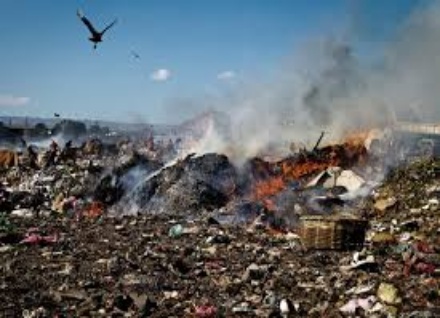Waste Management in Nigeria: Effective Ways to Combat Waste in Nigeria
Waste sometimes referred to as trash, garbage, or refuse is any material, substance or by-product eliminated or discarded as no longer useful or required after the completion of a process. Waste can either be in a liquid or solid state and can be hazardous and recyclable too. There are different sources of waste; it could be municipal that is from households, schools, office etc., and medical, agricultural, industrial or from automobile.

The components of waste found in our societies these days are becoming scientific and consists of components known as E-Waste. The truth of the matter is that time must be taken to deal with these waste before people begin to acquire strange diseases. With increase in population and the demand for food and other things necessary for living, there has been an increase in the amount of waste generated. Waste management in Nigeria has turned out to be an environmental issue and this has drawn attention to stakeholders, environmentalists and medical practitioners.
Waste management is the generation, prevention, characterization, monitoring, treatment, handling, residue, and reuse of solid waste. It is the fulcrum upon which the health of people hinges. In Nigeria, it is common sight to see waste in refuse dumps being found everywhere for a good number of months with its non-attendance resulting to public health implications, it is hard to see waste collation site without odour nuisance as a result of degradation, decay or fermentation.
Unmanaged waste can cause a lot hazards to our health and can encourage the spread of infections as it attracts vectors like flies and rodents like rats. For those who live around areas filled with waste it is common for them to suffer communicable diseases like diarrhea, dysentery, typhoid before the carriers of these disease breeds on the waste dumps.
The method of waste management in Nigeria has left much to talk about, it is not an all comers affair and as such cannot be managed by non-professionals as to curb refuse dumps being found everywhere with reckless abandon. I propose that pay loaders be used to scrape the wastes from the wastes dumps excavating the soil and leaving it bear and exposed to so many ills detrimental to the underground surface water likely to affect the health of man and animal within the environment. More so, scavengers who are involved in the recycling of waste can sustain injuries associated with infectious items and may likely pass it on to others around them.
Major Health Hazards Caused by Waste
Disease Breeding Ground
Waste that is uncollected can obstruct water runoff and lead to the stagnation of water bodies resulting to the formation of a breeding ground of disease. It can also contaminate water bodies if it is near a water source.
Toxic Accumulation
Dumping of waste in or near water source may result to the accumulation of toxic substances in the food chain to the plant and animal that feed on it.
Injury & Infection
Medical waste like discarded syringes, bandages, plasters, swabs can cause an increase in injury and infection this is because they are usually disposed with non-infectious waste hence leading to major health hazards such as hepatitis B and hepatitis C.
Pollution
Incinerated waste which is one of the major ways of managing waste can pose as a problem when it is not properly managed as it can cause pollution and attracts vectors and rodents that are known to spread disease, workers are at a risk of contracting chronic respiratory disease as a result of exposure to dust and other hazardous materials.
Harmful Exposure
Recycling also another way of managing waste may be a danger to those who recycle because sometimes these recycled wastes that containing harsh chemicals and metals and this may lead to chemical and toxic exposure.
Solution/Ways to Combat Waste in Nigeria
Segregate Waste
To ensure that the environment is not affected by the mismanagement of waste or exposed to any health hazards, people should learn how to segregate their waste, organic and inorganic waste should be separated.
Manage Waste Effectively
Organic waste should be managed in such a way that they can easily decompose and they should be used as fertilizer if possible. Waste that contains certain chemicals should be treated before they are released as they are highly toxic and exposure can lead to disease or death.
Careful Planning
The solution to waste management starts with planning, quantification of waste and the determination of high and low density areas, methods to be adopted and funds. Waste generation, collation, collection, and final disposal have gone scientific and as such should be handled scientifically. It can be a valuable resource if addressed correctly, through policy and practice. With rational and consistent waste management practices there is an opportunity to reap a range of benefits.
Economic Benefits of Waste Management in Nigeria
Our country can reap economic benefit as the treatment and disposal of waste can create market for recycling, improving economic efficiency through the means of resource use, treatment and disposal and creating markets for recycles can lead to efficient practices in the production and consumption of products and materials resulting in valuable materials being recovered for reuse and the potential for new jobs and new business opportunities.
More so, by reducing adverse impacts on health caused by waste management, better social advantages can lead to new sources of employment and potentially lift communities out of poverty especially in the rural and semi-urban areas. Reducing or eliminating adverse impacts on the environment through reusing and recycling and minimizing resource extraction can provide improved air and water quality and help in the reduction of greenhouse emissions.
Following effective waste management practices can provide subsequent generations a more robust economy, a fairer and more inclusive society and a cleaner environment.